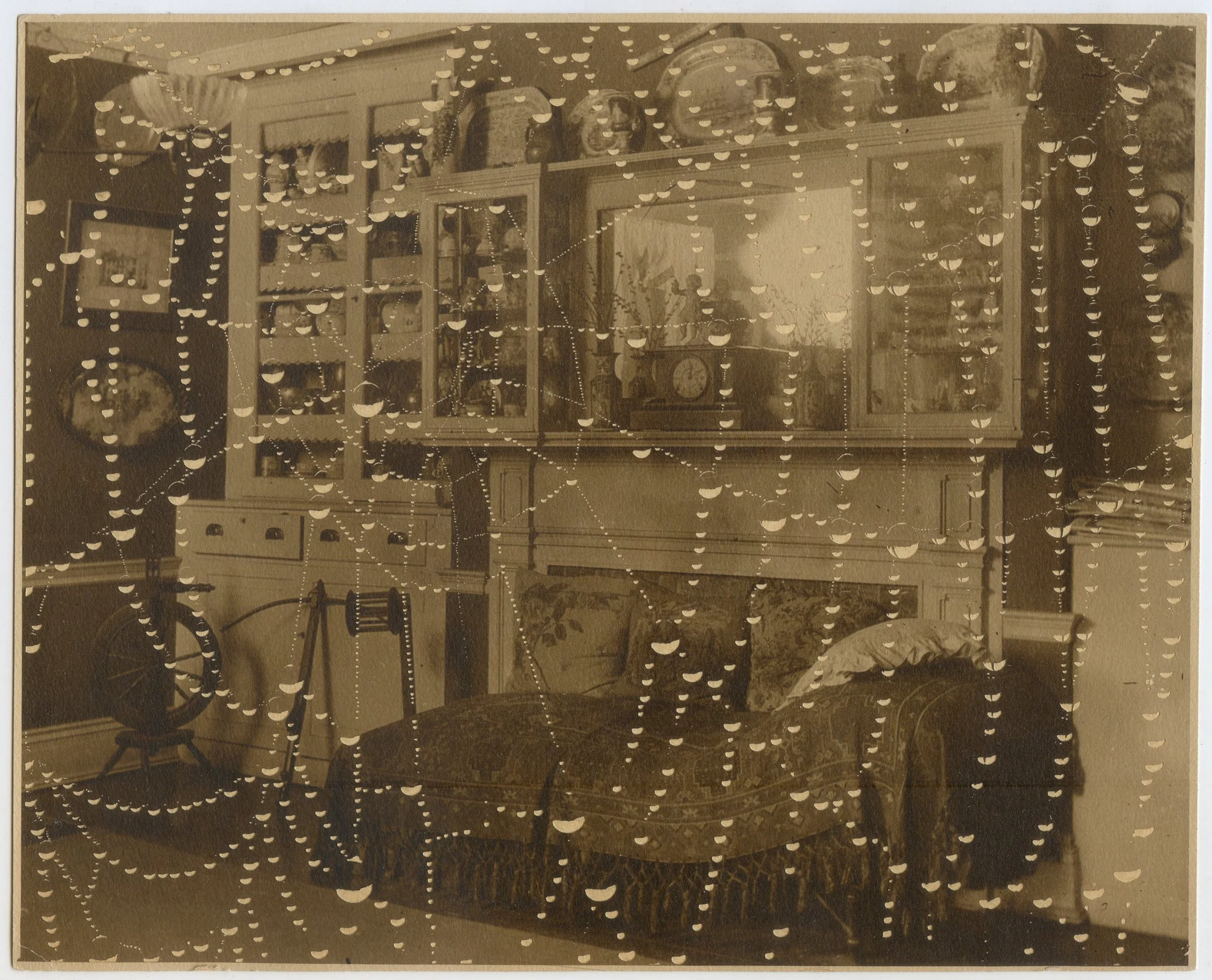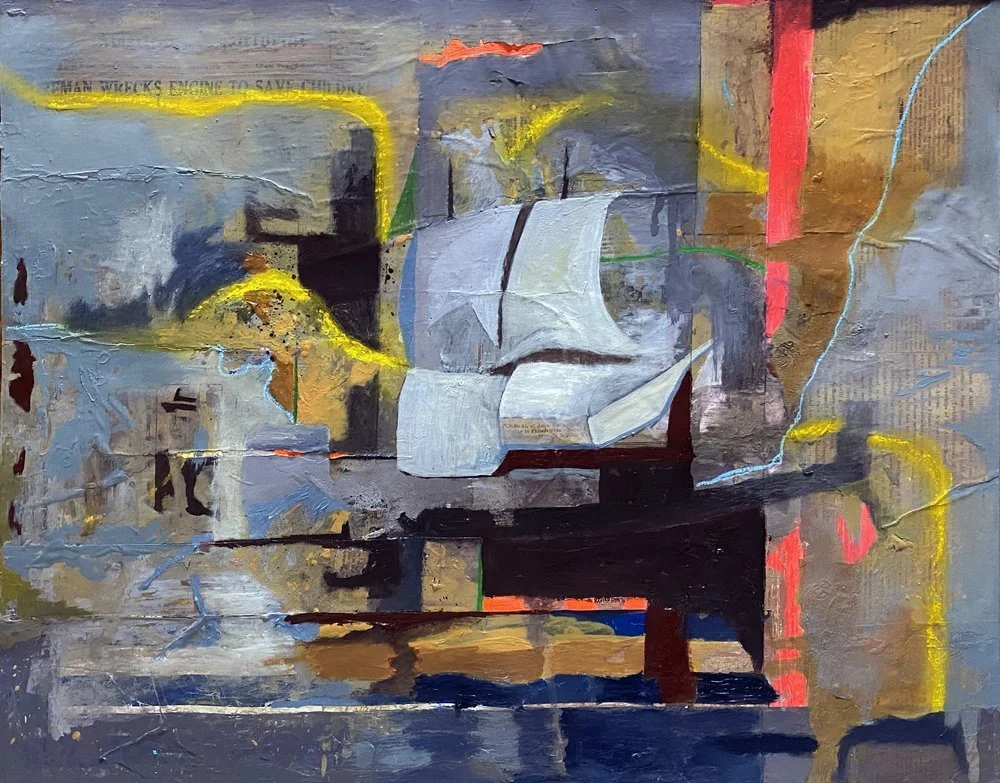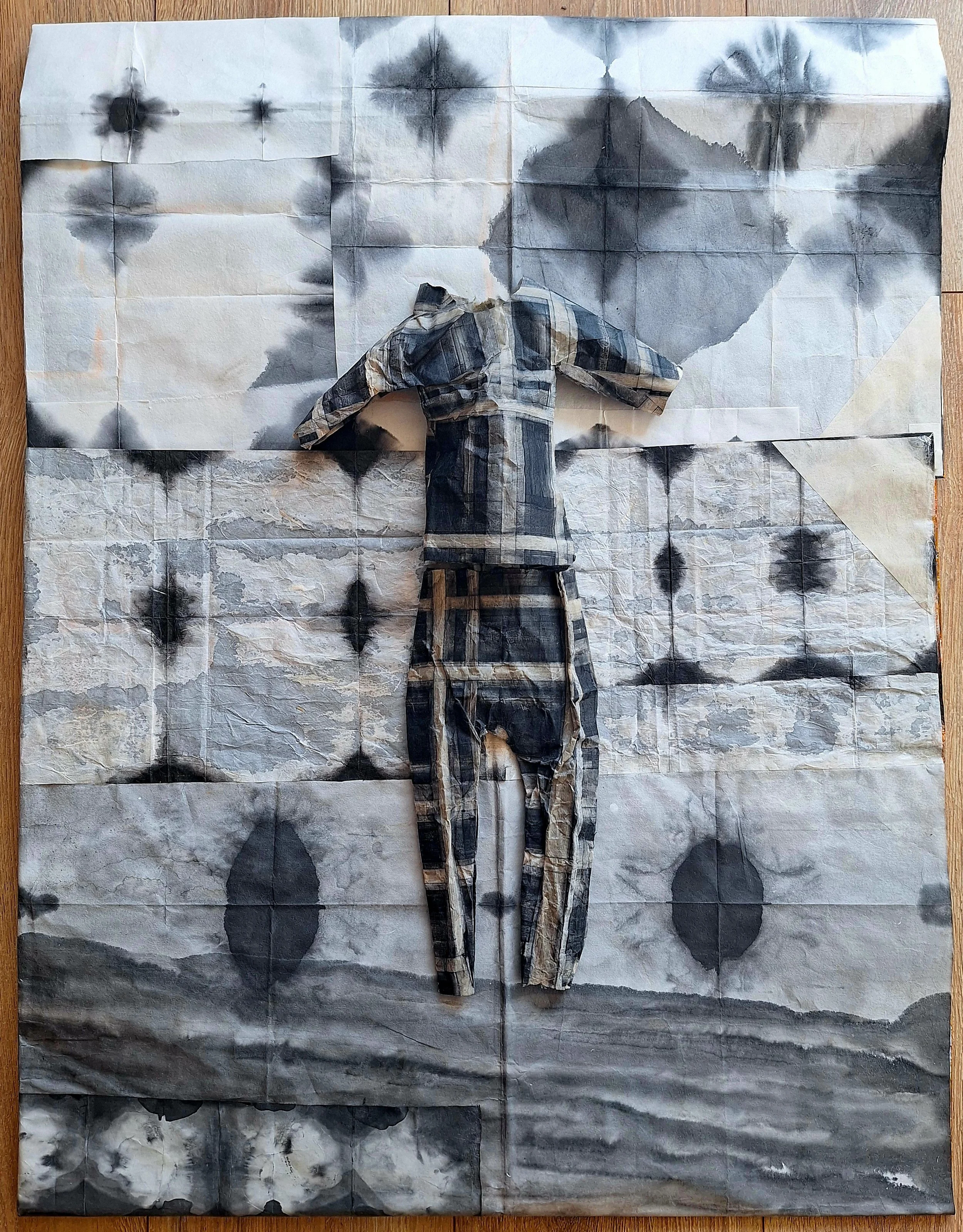“Identification” and “Remember Us”
By Paul Catafago
Identification
(A Palestinian poem written in the diaspora)
They said they wanted
a Palestinian poet.
When I showed up,
I knew they
were disappointed.
They said you don’t have
a “typical” Palestinian name.
I said my family has roots
hundreds of years,
probably thousands, in
Palestine.
And what is a “typical”
Palestinian name
anyway?
My name Paul is a popular
name amongst Palestinian Christians
I said.
They asked,
shocked,
“There are
Palestinian Christians?”
Then they told me,
you speak
with a New York accent
and your poems don't always
mention Palestine
and many of them aren't even
about Palestine.
And I said
I'm Palestinian.
My life has been threatened
because I'm Palestinian.
That's very Palestinian.
And they always give me
a hard time at the airport
in Tel Aviv
near Jaffa,
which they used
to call the city
of poets,
the city
where my father
was born.
That's very Palestinian.
And my father's family
owned orange groves,
they were in the orange
business n Jaffa.
My grandmother's family
owned part of Mount Carmel
in Haifa on the Mediterranean coast.
That's very Palestinian.
And when I
went to Palestine
the first time,
I was shot at by soldiers
of the Israeli Defense Forces.
That's very Palestinian.
And when I leave
occupied Palestine,
the young Israeli customs
officer
at the airport
always asks me,
"Did you meet with Palestinian Arabs?"
That's very Palestinian.
Yes I met with Palestinian Arabs
because
they make really good food
and they like telling jokes
but they also
have a lot of pathos
and I'm a poet
I like pathos.
That's very Palestinian.
And yeah you're right,
I have a New York
accent because
I was born in exile
to political refugees
in Queens,
New York City.
And being born in
exile to political refugees
is a very Palestinian thing.
Yes I speak with a New York
accent, but
if you want me
to effectuate a Levantine
accent, like pronouncing "P's"
as "B's"
like Paul the Palestinian poet
becomes Baul the Balestinian boet.
I could do that.
I could accommodate
you.
That's very
Palestinian.
How much are you paying?
Poets aren't supposed to talk about money.
Especially Palestinian poets in exile.
Then they asked me:
Can you write more
Palestinian poems?
I said,
listen,
I could have been born on Mars,
and speak with a Martian accent
but my lineage from
my father's side is
Palestinian.
I'm Palestinian.
So even if I write
poems
about donkeys,
or sunshine
or trees
they are all Palestinian
poems.
You feel me?
And how much did
you say you were paying?
Remember Us
Please
remember us.
Remember we were
known
for our generosity
and our creativity.
Remember we
valued song
and poetry.
Remember that
our culture
esteemed writers,
teachers
and farmers.
Remember we
did not idolize
material or money.
Remember, though
we were a people
who worshipped
the creator in different ways,
and believed in different
theologies, we practiced
tolerance and acceptance
of the other.
Remember we were a people
who valued friendship
and family.
and if you became our friend
you were a member of
our family.
Remember that in our houses
there were four generations
who lived.
Remember we were a people
who honored both
our elders and our children.
Remember when you entered
our houses
we asked you
if you were hungry.
Remember the food we made for
you; that you had never seen
so much food;
that it was all so delicious.
Remember that before we ate,
regardless of our religion,
we thanked the creator
and we did the same after
we finished eating.
Remember our land;
how we cherished
and tended to it,
understanding it as a gift
of the creator.
Remember the orange groves
and the pomegranate trees.
Remember you helped.
harvest our olive trees
in the fall.
Remember.
Remember our joy,
our embroidery,
our culture of poetry.
Remember how much we
loved life,
how we regarded every day
a blessing.
Remember.
They will tell you lies
about us now.
They will have you judge
us by the actions of a few.
They will not tell you
why some of us were rendered
mad when our lands were stolen.
They will say we are evil.
They will say we are terrorists.
Some will say we are not even human,
not worthy of basic rights.
They will kill our children
and justify the killings.
They will do horrific things
to us and never be held accountable.
And you will become weary.
But remember.
Remember who we are
and where we come from.
Remember our light,
our generosity and our love.
Remember our dignity.
So in these difficult times,
as we are in deep grief
mourning the deaths
of more than 17,000 of our people,
more than 5,000 children,
stand with us,
grieve with us.
Then struggle
for justice with us.
Read our poems.
Eat our foods.
Wear clothes with
our embroidery.
Bear witness
to who you know us
to be.
Remember how when
you came and stayed with
us, we laughed so much
and how much we loved life.
So remember all of that;
and do not pity us now.
Just stand with us
and remember
who we were
and who we will always be.
Remember our strength
and our resolve.
Remember we taught
you a word in Arabic
that is particular to
our people,
Sumud
which means
steadfastness.
Remember
our Sumud,
how steadfast we are.
Remember when you left
us, we told you to come back,
to return.
Remember.
We too shall
return.
Remember we shall return.
Paul Catafago is a US-based Palestinian-Lebanese poet and cultural organizer. He has performed spoken-word poetry at the Nuyorican Poets Café and St. Mark’s in the Bowery. He twice participated in the Poetry Project’s New Year’s Marathon. His work has appeared in journals like Pedestal Magazine and Tribes. His poem, “Madness,” was included in Madness: An Anthology of World Poetry (Nepal: Red Panda Books, 2023.) His poem “Remember Us” was recently published as a bilingual broadsheet (Puerto Rico: La Impresora, 2023). He has participated in the Kritya Poetry Festival (2021) and the Chandrabhaga Poetry Festival (2021, 2022), both based in India.
If you’ve enjoyed reading this article, please consider making a donation. Your donation goes towards paying our contributors and a modest stipend to our editors. Singapore Unbound is powered by volunteers, and we depend on individual supporters. To maintain our independence, we do not seek or accept direct funding from any government.









“Like the man who wears a vest saying negotiator in a hostage situation, I want one that says prioritizer.” Three poems by Satya Dash.